La tragedia de Len Bias (2009)
From sure thing to what if?
Género : Documental
Tiempo de ejecución : 53M
Director : Kirk Fraser
Sinopsis
Len Bias, número 2 del draft de la NBA de 1986, es encontrado muerto por sobredosis el mismo día de la elección en el sorteo de novatos. 30 años después su triste final se recuerda como un claro ejemplo del peligro que corren los jóvenes deportistas que dan el salto al mundo profesional sin la suficiente preparación.
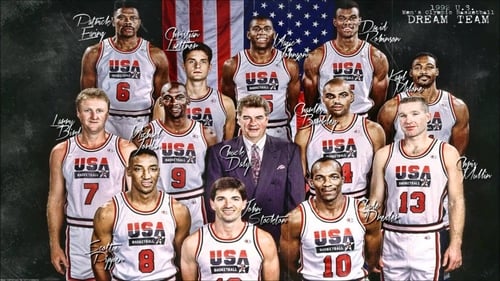
Narrado por el escritor, director y productor Ed Burns, este es el documental definitivo sobre la historia del equipo olímpico de USA de 1992, con entrevistas recientes a los 12 miembros, incluyendo Michael Jordan, Magic Johnson, Larry Bird y Charles Barkley; así como escenas nunca vistas e historias que no habían sido contadas sobre cómo el equipo más dominante jamás construido devolvió al baloncesto estadounidense a la gloria, a la vez que convertían el baloncesto en un fenómeno global.
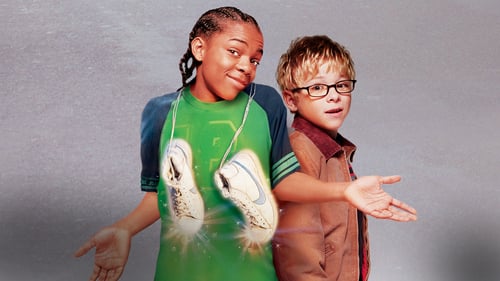
Calvin es un niño huérfano de 14 años que encuentra unas zapatillas que pertenecieron a Michael Jordan. No son unas zapatillas cualquiera ya que poseen poderes mágicos que le convertirán en una estrella de la NBA. Una comedia fantástica dirigida al publico infantil y juvenil. A pesar de la ausencia de nombres conocidos en sus títulos de crédito, un filme patrocinado por la NBA que consiguió alcanzar los primeros puestos de la taquilla americana
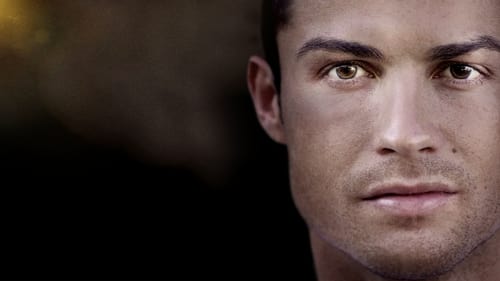
Ronaldo: Filmado durante 14 meses con un acceso sin precedentes en el círculo íntimo del protagonista y el deporte. Por primera vez en la historia, el mundo se vuelve enteramente franco, y nos sumergimos a la vida íntima del futbolista, teniendo acceso a través del mismo futbolista, su padre el hombre de familia y amigo en este conmovedor y fascinante documental. A través de profundas conversaciones, imágenes de archivo del mundo del fútbol, hasta ahora nunca vistas, la película da una visión asombrosa dentro del deporte y en la vida personal del triple ganador del Balón de Oro, a Cristiano Ronaldo hasta llegar en la cima de su carrera. De los creadores de "Senna" y "Amy", Ronaldo lleva al público a un viaje íntimo y revelador de lo que es vivir como un atleta icónico en el ojo de la tormenta.
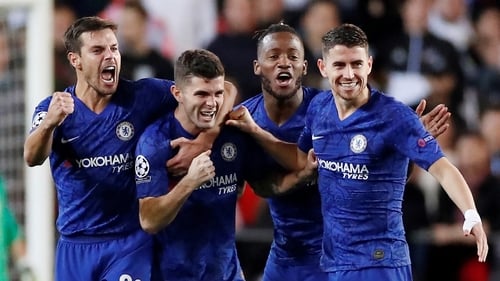
Chelsea finished third in the Premier League last season, albeit a staggering 25 points behind second-placed Liverpool, and started life under a new manager with club legend Frank Lampard taking the reins. With a transfer ban impacting the west Londoners' business, and the Covid-19 pandemic causing unprecedented disruption mid-season, Chelsea finished the domestic season narrowly losing the FA Cup final to Arsenal. Despite the disappointment, a 4th place finish secured on the final day of the Premier League campaign guarantees the Blues will be playing Champions League football in the 2020/21 season.
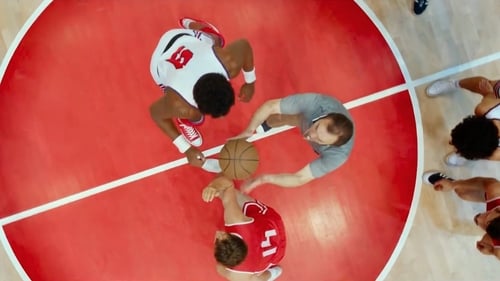
Película basada en hechos reales ocurridos en los Juegos Olímpicos de 1972 en Munich. Se centra en el memorable partido final entre los equipos de baloncesto de la URSS y los EE. UU.
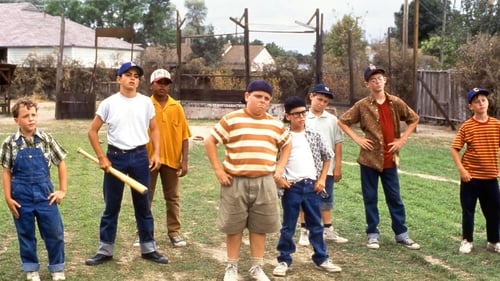
Durante un verano de amistad y aventura, un chico entra a formar parte de la banda, nueve chavales se convierten en un equipo y su líder es leyenda ya que se enfrenta al temido misterio tras el muro del campo de la derecha.
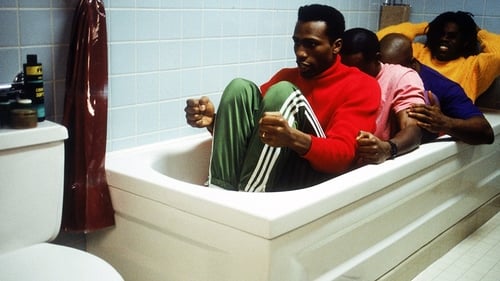
Derice, Sanka, Junio Bevil y Yul son cuatro atletas jamaicanos, sin apenas recursos y sin tener conocimiento o adaptación a la nieve, pero dispuestos a alcanzar una difícil meta: ganar la medalla de oro nada menos que en los Juegos Olímpicos de invierno de Calgary, Canadá. Para ello reclutan como entrenador a un ex-campeón norteamericano (John Candy), quien aceptará la imposible tarea debido a su precaria situación económica.
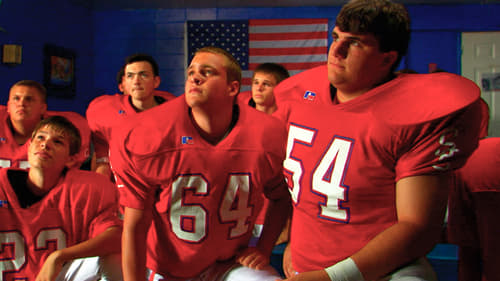
Facing the Giants (también conocida como Desafío a los gigantes) es una película cristiana dirigida y protagonizada por Alex Kendrick. El reparto fue compuesto por voluntarios de la Iglesia Bautista Sherwood, y es la segunda película hecha por Sherwood Pictures. Fue filmada en Albany, Georgia, y la película relata una historia de fútbol americano de una perspectiva de la fe cristiana.
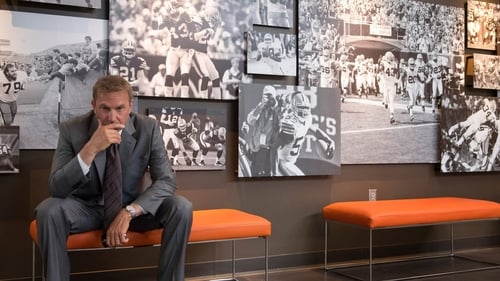
Sonny Weaver Jr. (Costner), director general de los Browns de Cleveland, intenta fichar al número uno para su equipo de fútbol americano. La decisión que va a tomar implica sacrificios que pueden afectar a su vida personal y profesional y, además, puede significar un gran cambio en la vida de un grupo de jóvenes que sueñan con jugar en la NFL.

Pese a haber gozado de gloria y de premios en su pasado, un luchador (Jake Gyllenhaal) ha caído en desgracia. Sin embargo, no se ha rendido y ha tomado la decisión de mejorar su imagen por el bien de su mujer y su hija.
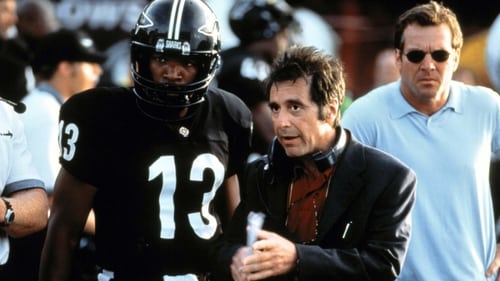
Cuatro años antes, los Tiburones de Miami, dirigidos por el entrenador D'Amato, habían ganado dos campeonatos consecutivos, pero ahora sólo consiguen acumular derrotas. Además, el público escasea y los antiguos ídolos están en el ocaso de sus carreras, particularmente Jack "Cap" Rooney, que a sus 39 años se aferra desesperadamente a lo poco que le queda como jugador profesional. Por otra parte, son frecuentes los conflictos con Christina Pagniacci, la joven presidenta y propietaria del equipo. @fer__mero
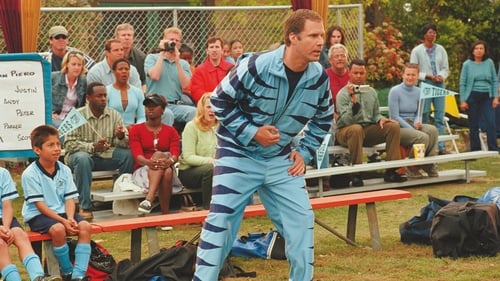
Phil Weston (Will Ferrell) es un hombre que ha tenido que soportar durante toda su vida a un padre extremadamente competitivo, Buck (Robert Duval). Cuando Phil decide entrenar al equipo de fútbol infantil en el que juega su hijo, descubre que su padre es el entrenador del equipo favorito de la Liga. Mientras las viejas rencillas vuelven a aflorar, Phil y Buck tendrán que tomar serias medidas para alzarse con el trofeo del campeonato. (FILMAFFINITY)
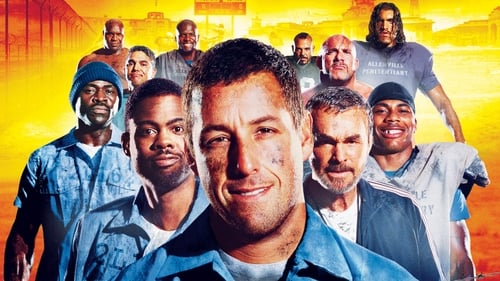
Paul Crewe, un jugador de fútbol americano, y Nate Scarboro, entrenador y antiguo campeón, se encuentran cumpliendo condena en la misma prisión. Juntos deciden formar un equipo que juegue contra el de los guardias.

Tonya Harding fue la primera mujer estadounidense en completar un salto de triple axel en competición en patinaje sobre hielo en 1991. Pero el éxito en el hielo no siempre estuvo acompañado de felicidad en su vida personal.
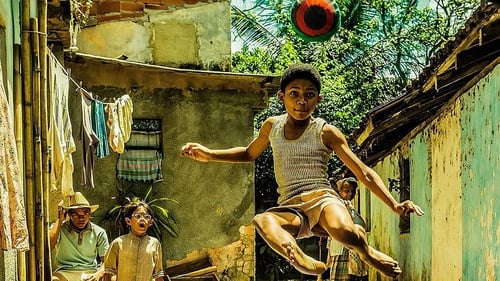
Biopic sobre el legendario futbolista brasileño Edson Arantes do Nascimento, Pelé.
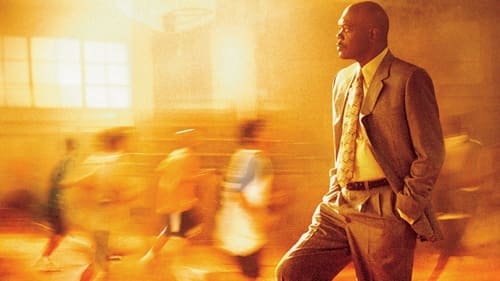
El filme está inspirado en la vida real del controvertido entrenador de baloncesto Ken Carter, que en su segundo año en el Instituto Richmond de California, y con un equipo imbatido con 13 victorias, decidió que sus jugadores no jugarían los próximos dos partidos y en su lugar estudiarían para los exámenes trimestrales por el bajo nivel académico que tenían.

En esta aventura, todas las hadas competirán en una carrera difícil y tradicional a través de las cuatro estaciones. Pero cuando Campanilla nesesite ayuda, Clank y Bobble entrarán en la carrera.

Viola (Amanda Bynes) se ha enamorado locamente de su compañero de piso Duke, que ama a la bella Olivia, que a su vez se ha enamorado de Sebastian, su hermano gemelo, por el que se quiere hacer pasar Viola... Adaptación moderna y juvenil basada en la obra de Shakespeare "Twelfth Night" -Noche de reyes-.
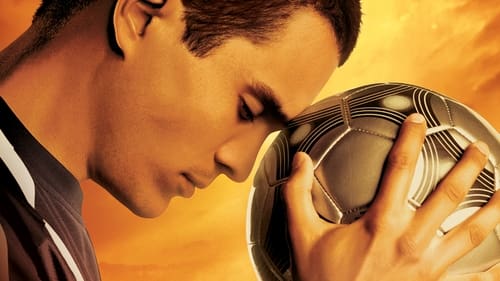
Como millones de niños de todo el mundo, Santiago tiene el sueño de ser un jugador de fútbol profesional. Sin embargo, viviendo en una barriada de Los Angeles, piensa que es un sueño difícil de cumplirse. Cuando el pequeño Santiago Munez (Kuno Becker) cruza la frontera de México y se traslada a América con su familia, sólo tiene dos posesiones: su balón de fútbol y una foto de la Copa del Mundo hecha jirones.
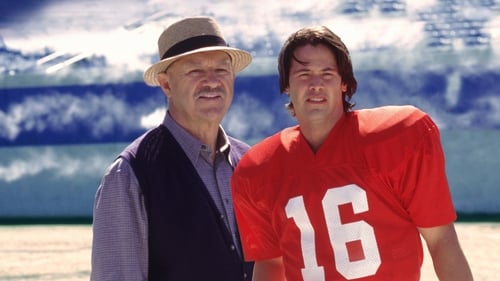
Una brutal huelga de la Liga Nacional de Fútbol americano, deja en el aire los anhelados play-off. Los Washington Sentinels tenían al alcance de la mano llegar a la final, pero como no pueden contar con sus estrellas deciden contratar temporalmente a un grupo de aficionados para quienes ésta es la gran oportunidad de sus grises y anodinas vidas.

Paul Westhead, antes de ser referente en la mejor liga del mundo, sacudió al baloncesto practicando el juego más veloz y eléctrico nunca visto en las ligas universitarias. (FILMAFFINITY)

On August 9, 1988, the NHL was forever changed with the single stroke of a pen. The Edmonton Oilers, fresh off their fourth Stanley Cup victory in five years, signed a deal that sent Wayne Gretzky, a Canadian national treasure and the greatest hockey player ever to play the game, to the Los Angeles Kings in a multi-player, multi-million dollar deal. As bewildered Oiler fans struggled to make sense of the unthinkable, fans in Los Angeles were rushing to purchase season tickets at a rate so fast it overwhelmed the Kings box office. Overnight, a franchise largely overlooked in its 21-year existence was suddenly playing to sellout crowds and standing ovations, and a league often relegated to “little brother” status exploded from 21 teams to 30 in less than a decade.
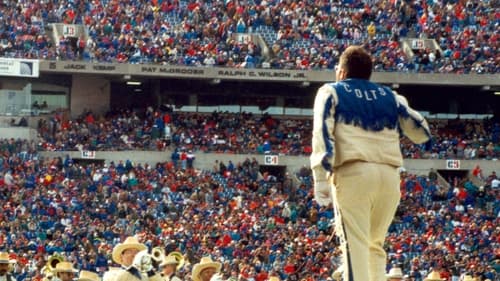
In late March of 1984, a moving company secretly packed up the Baltimore Colts’ belongings and its fleet of vans sneaked off in the darkness of the early morning. Leaving a city of deeply devoted fans in shock and disbelief. What caused owner Robert Irsay to turn his back on a town that was as closely linked to its team as any in the NFL? Academy Award-winning filmmaker Barry Levinson, himself a long-standing Baltimore Colts fanatic, will probe that question in light of the changing relationship of sports to community. Through the eyes of members of the Colts Marching Band, Levinson will illustrate how a fan base copes with losing the team that it loves.

In 1981, college athletic recruiting changed forever as a dozen big-time football programs sat waiting for the decision by a physically powerful and lightning-quick high school running back named Marcus Dupree. On his way to eclipsing Herschel Walker’s record for the most touchdowns in high school history, Dupree attracted recruiters from schools in every major conference to his hometown of Philadelphia, Miss. More than a decade removed from being a flashpoint in the civil-rights struggle, Philadelphia was once again thrust back into the national spotlight. Dupree took the attention in stride, and committed to Oklahoma. What followed, though, was a forgettable college career littered with conflict, injury and oversized expectations. Eight-time Emmy Award winner Jonathan Hock will examine why this star burned out so young and how he ultimately used football to redeem himself.

In 1982, Raiders owner Al Davis beat the NFL in court and moved his team from Oakland to Los Angeles. With a squad as colorful as its owner, the Raiders captivated a large number of black and Hispanic fans in L.A. at a time when gang warfare, immigration and the real estate boom were rapidly changing the city. The L.A. Raiders morphed into a worldwide brand as the team’s colors, swagger and anti-establishment ethos became linked with the hip-hop scene that was permeating South Central Los Angeles. Rapper-turned-filmmaker Ice Cube was not only witness to this evolution, he was also a part of it. As a member of the notorious rap group N.W.A, Ice Cube helped make the silver and black culturally significant to a new generation and demographic. Still a die-hard Raiders fan, Cube will explore the unlikely marriage between the NFL’s rebel franchise and America’s glamour city and show how pro football’s outlaw team became the toast of La La Land.

In 1982, Cody Webster and a small group of friends from Kirkland, Washington, sat anxiously in a dugout waiting to take the field for the championship game of the Little League World Series. Their focus was just about what you’d expect from any 12-year-old: hit the ball, throw strikes, cross your fingers and then maybe – maybe – you’ll win. Adults in the stands and watching from home saw a much broader field of play. The memories of American hostages and a crippling oil crisis were still fresh; the economic malaise of the late 1970s still lingered; and the new President was recovering from an assassination attempt even while confronting new threats from the Soviet Union. Meanwhile, back on that tiny baseball field in Williamsport, Pennsylvania, no American team had won a true international Little League World Series Championship in more than a decade. When the Kirkland players rushed from their dugout that day, they stepped onto a much bigger field than the one they saw.

In Fernando Nation, Mexican-born and Los Angeles-raised director Cruz Angeles traces the history of a community that was torn apart when Dodger Stadium was built in Chavez Ravine and then revitalized by one of the most captivating pitching phenoms baseball has ever seen. Nicknamed “El Toro” by his fans, Fernando Valenzuela ignited a fire that spread from LA to New York—and beyond. He vaulted himself onto the prime time stage and proved with his signature look to the heavens and killer screwball that the American dream was not reserved for those born on U.S. soil. In this layered look at the myth and the man, Cruz Angeles recalls the euphoria around Fernando’s arrival and probes a phenomenon that transcended baseball for many Mexican-Americans. Fernando Valenzuela himself opens up to share his perspective on this very special time. Even 20 years later, “Fernandomania” lives.

In 1985, at the tender age of 13, Mat Hoffman entered into the BMX circuit as an amateur, and by 16 he had risen to the professional level. Throughout his storied career, Hoffman has ignored conventional limitations, instead, focusing his efforts on the purity of the sport and the pursuit of “what’s next.” His motivations stem purely from his own ambitions, and even without endorsements, cameras, fame and fans, Hoffman would still be working to push the boundaries of gravity. Academy Award nominee Spike Jonze and extreme sport fanatic Johnny Knoxville, along with director Jeff Tremaine, will showcase the inner workings and exploits of the man who gave birth to “Big Air.”

Love them or hate them, the Yankees remain the most glorified team in American sports history. Led by the Babe, the Iron Horse, the Yankee Clipper and the Mick, they dominated baseball for more than four decades before the legendary franchise sagged under the ownership of CBS. Then in 1973, a 42-year-old shipbuilder named George Steinbrenner, a man now as iconic to his team as the pinstripes on its uniforms, headed a group that purchased the Yankees, and turned that investment into a billion-dollar business. Since 1923, the ‘House that Ruth Built’ has been the epicenter of the baseball world, inspiring generations of fans to maintain loyalties through good times and bad. But with a deteriorating facility and an eye towards 21st century style revenues, Steinbrenner was inspired to build an impressive new stadium. While the Yankees kept their Bronx address at 161st and River Avenue, the new ballpark marked the end of one grand era with the hope of launching another.

In the fall of 1962, a dramatic series of events made Civil Rights history and changed a way of life. On the eve of James Meredith becoming the first African-American to attend class at the University of Mississippi, the campus erupted into a night of rioting between those opposed to the integration of the school and those trying to enforce it. Before the rioting ended, the National Guard and Federal troops were called in to put an end to the violence and enforce Meredith's rights as an American citizen.

Fantasy Sports is estimated to be a $4 billion industry that boasts over 30 million participants and a league for almost every sport imaginable. But for all this success, the story of the game’s inception is little known. The modern fantasy leagues can be traced back to a group of writers and academics who met at La Rotisserie Francaise in New York City to form a baseball league of their own: The Rotisserie League. The game quickly grew in popularity, and with the growing use and attractiveness of the Internet, the “founding fathers” never foresaw how their creation would take off and ultimately leave them behind. Innovative filmmakers Adam Kurland and Lucas Jansen will chronicle the early development and ultimate explosion of Rotisserie Baseball, and shine a light on its mostly unnoticed innovators.

In June of 1999 an unlikely chestnut colt named Charismatic, with jockey Chris Antley aboard, headed down the stretch at the Belmont Stakes with the hope of becoming the first Triple Crown winner in nearly 21 years.

Este documental muestra al equipo nacional de Rugby sudafricano "Springboks" y su impacto en la transición de Sudáfrica de la segregación a la integración. Se trata de entrevistas con los jugadores y los activistas políticos

Few athletes in Olympic history have reached such heights and depths as Marion Jones. After starring at the University of North Carolina and winning gold at the 1997 and '99 World Track and Field Championships, her rise to the top culminated at the 2000 Summer Games in Sydney, Australia. There, she captivated the world with her beauty, style and athletic dominance, sprinting and jumping to three gold medals and two bronze. Eventually, though, her accomplishments and her reputation would be tarnished. For years, Jones denied the increasing speculation that she used performance-enhancing drugs. But in October 2007, she finally admitted what so many had long suspected -- that she had indeed used steroids. Jones was sentenced to six months in prison for lying to federal investigators and soon saw her Olympic achievements disqualified. Now a free woman, Jones is running in a new direction in life and taking time to reflect.

When the night of October 16, 2004 came to a merciful end, the Curse of the Bambino was alive and well. The vaunted Yankee lineup, led by A-Rod, Jeter, and Sheffield, had just extended their ALCS lead to three games to none, pounding out 19 runs against their hated rivals. The next night, in Game 4, the Yankees took a 4-3 lead into the bottom of the ninth inning, then turned the game over to Mariano Rivera, the best relief pitcher in postseason history, to secure yet another trip to the World Series. But after a walk and a hard-fought stolen base, the cold October winds of change began to blow. Over four consecutive days and nights, this unlikely group of Red Sox miraculously won four straight games to overcome the inevitability of their destiny. Major League Baseball Productions will produce a film in "real-time" that takes an in-depth look at the 96 hours that brought salvation to Red Sox Nation and made baseball history in the process.
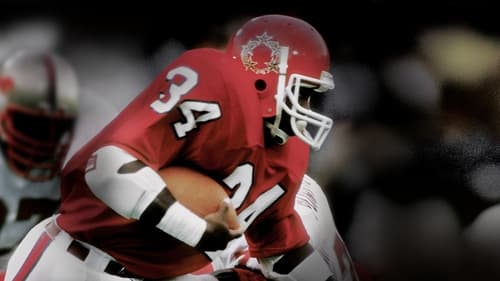
In 1983 the upstart United States Football League (USFL) had the audacity to challenge the almighty NFL. The new league did the unthinkable by playing in the spring and plucked three straight Heisman Trophy winners away from the NFL. The 12-team USFL played before crowds that averaged 25,000, and started off with respectable TV ratings. But with success came expansion and new owners, including a certain high profile and impatient real estate baron whose vision was at odds with the league’s founders. Soon, the USFL was reduced to waging a desperate anti-trust lawsuit against the NFL, which yielded an ironic verdict that effectively forced the league out of business. Now, almost a quarter of a century later, Academy Award-nominated and Peabody Award-winning director Mike Tollin, himself once a chronicler of the league, will showcase the remarkable influence of those three years on football history and attempt to answer the question, “Who Killed the USFL?”

Ricky Williams does not conform to America’s definition of the modern athlete. In 2004, with rumors of another positive marijuana test looming, the Miami Dolphins running back traded adulation and a mansion in South Florida for anonymity and a $7 a night tent in Australia. His decision created a media frenzy that dismantled his reputation and branded him as America's Pothead. But while most in the media thought Williams was ruining his life by leaving football, Ricky thought he was saving it. Through personal footage recorded with Williams during his time away from football and beyond, filmmaker Sean Pamphilon takes a fresh look at a player who had become a media punching bag and has since redeemed himself as a father and a teammate.

“The NFL Today” on CBS was one of the preeminent sports programs on television in the early 1980s. It was a perfect combination of reporting, analysis, predictions, humor and talent. But there was no personality on the show more popular than Jimmy “The Greek” Snyder. Born in Steubenville, Ohio, to Greek immigrants, Jimmy overcame childhood tragedy, moved to Las Vegas, and eventually became the biggest name in the world of sports handicapping. When CBS added him as an “analyst” on “The NFL Today,” “The Greek” not only further increased his stature as a sort of national folk hero, but he also gained an air of respectability never before associated with gamblers. Peabody Award-winning filmmaker Fritz Mitchell, who broke in as an intern on “The NFL Today,” will examine Snyder’s impact on the growth of sports gambling, while also taking a fresh look at The Greek’s tragic downfall.

From 1981-1984, a small private school in Dallas owned the best record in college football. The Mustangs of Southern Methodist University were riding high on the backs of the vaunted "Pony Express" backfield. But as the middle of the decade approached, the program was coming apart at the seams. Wins became the only thing that mattered as the University increasingly ceded power of the football program to the city's oil barons and real estate tycoons and flagrant and frequent NCAA violations became the norm. In 1987, the school and the sport were rocked, as the NCAA meted out "the death penalty" on a college football program for the first and only time in its history. SMU would be without football for two years, and the fan base would be without an identity for 20 more until the win in the 2009 Hawaii Bowl. This is the story of Dallas in the 1980's and the greed, power, and corruption that spilled from the oil fields onto the football field and all the way to the Governor's Mansion.

On the evening of Sept. 7, 1996, Mike Tyson, the WBC heavyweight champion, attempted to take Bruce Seldon’s WBA title at the MGM Grand in Las Vegas. At this point in his career, Tyson’s fights had become somewhat of a cultural phenomenon, where the ever present hype of the professional boxing scene would come face to face with the worlds of big business, Hollywood, and hip hop. Sitting ringside was controversial rapper Tupac Shakur. Shakur and Tyson were friends, a feeling of kinship linked them as each rose to stardom from poverty only to be thrown in prison. Following Tyson’s victory, Shakur and “Iron Mike” were to celebrate at an after party, but the rap star never arrived. Shakur was brutally gunned down later that night, and the scene in Las Vegas quickly turned from would-be celebratory revelry to ill fated and inopportune tragedy.



































